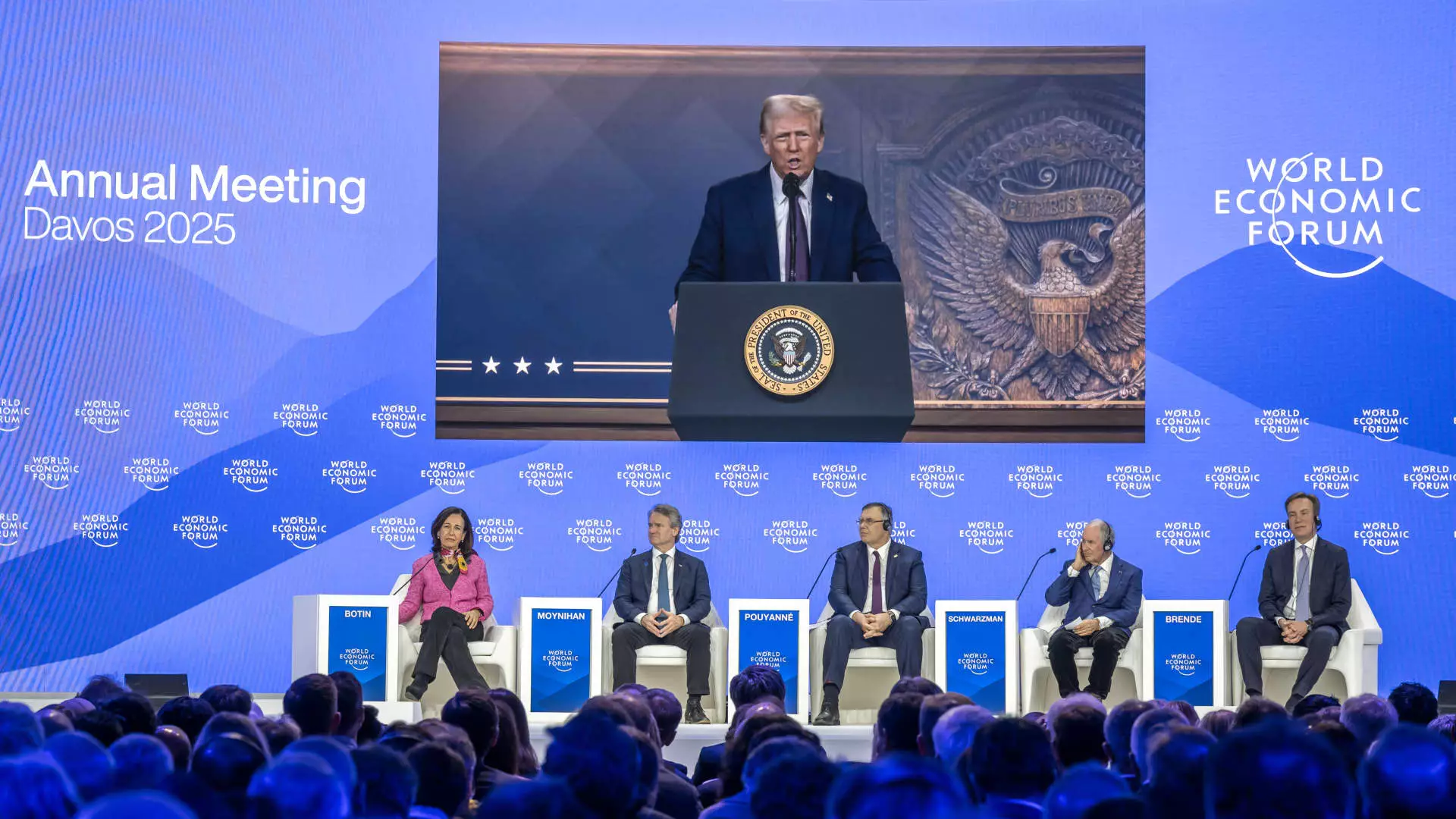In a recent address at the World Economic Forum in Davos, former President Donald Trump reignited a long-standing controversy over banking services, accusing major American banks of turning away conservative clients. These statements, made during a video segment, reignite a narrative Trump has pushed in campaigns and interviews since his presidency. Such claims, however, are adamantly denied by the financial institutions involved, notably Bank of America and JPMorgan Chase.
During his remarks, Trump directed pointed criticism toward Brian Moynihan, CEO of Bank of America, and Jamie Dimon, CEO of JPMorgan Chase. He claimed that these banks have systematically denied services to conservative clients, which he argued is wrong. Trump’s assertion that a significant number of conservatives have expressed grievances about banking practices raises several pressing questions about the intersection of politics and banking.
The former president stated, “I hope you start opening your bank to conservatives,” a comment that suggests a broader critique of financial institutions’ policies. He implied that banks should have a responsibility to cater to all political beliefs, bringing into focus the sensitive issue of whether banks should remain neutral in today’s politically charged climate.
While Trump’s rhetoric may resonate with a portion of the electorate who feel marginalized, it also risks oversimplifying the nuanced realities of banking policies that often stem from regulatory requirements rather than overt discrimination. For banks, the need to comply with stringent regulations established post-2008 financial crisis often leads to the closure of accounts in high-risk sectors, a move Trump claims disproportionately affects conservative organizations.
In response to Trump’s accusations, representatives from both banks have categorically denied any form of political discrimination or bias in their customer policies. A Bank of America official stated that the bank serves over 70 million clients and firmly maintains there is no political litmus test for their services. They asserted, “We have never and would never close an account for political reasons, full stop.” Similarly, JPMorgan Chase’s spokeswoman echoed these sentiments, emphasizing that their operations are strictly compliant with legal and regulatory frameworks.
Moreover, the claims of political discrimination are complicated by an incident involving Kansas Attorney General Kris Kobach, who sent a letter detailing allegations that Bank of America had deactivated accounts linked to religious groups. The bank’s response indicated that it maintains a clear policy of assessing clients based on compliance issues, rather than their political or religious affiliations. By providing a justification for account closures, the bank aims to clarify that any disruptions were due to regulatory compliance rather than ideological reasons.
The broader context of these accusations is steeped in the regulatory landscape that emerged following the catastrophic financial collapse of 2008. In striving to prevent future crises, regulators imposed stringent guidelines on banks, compelling them to distance themselves from businesses deemed high-risk. This has led to the closure of accounts for certain types of enterprises, including payday lenders and firearms dealers—industries frequently associated with conservative circles.
The pressure banks face from regulators has, in some instances, been interpreted by varying political factions as punitive measures against specific ideologies. In light of these complexities, the accusations of politicization within banking warrant careful analysis beyond surface-level interpretations.
As Trump’s narrative continues to unfold, it raises important considerations regarding the evolving relationship between politics and the financial sector. The suggestion that banks are engaging in selective service based on political alignment may galvanize certain voter bases, particularly as the 2024 presidential election draws nearer.
Moreover, influential voices within the tech and business communities have echoed Trump’s views, presenting a growing narrative that startups and conservative entities face systemic banking inequalities. Marc Andreessen’s comments on the matter reflect a rising concern that the banking industry may inadvertently cater to the ideological leanings of their executives or regulatory bodies.
Despite the ongoing tensions, the stock performances of major banks during political turmoil indicate resilience in the sector. For instance, following Trump’s recent comments, Bank of America and JPMorgan Chase saw an uptick in their stock values. This suggests that, while political discussions swirl around issues of access and discrimination, investor confidence in the banking sector’s fundamental financial stability remains robust.
As the debate over banking practices concerning political affiliations continues, it is crucial for all parties involved—banks, regulators, and clients alike—to engage in constructive dialogues that prioritize transparency and fairness. Moving forward, examining the intersection of financial practices and political ideologies will be essential in fostering an inclusive and equitable financial ecosystem capable of serving all citizens, regardless of their political beliefs.

